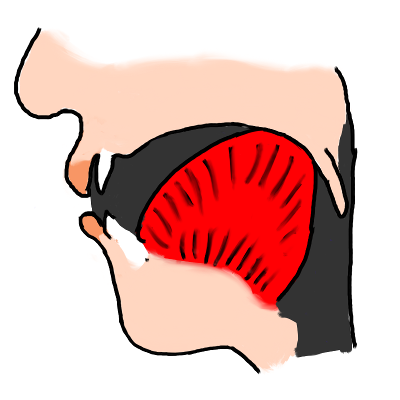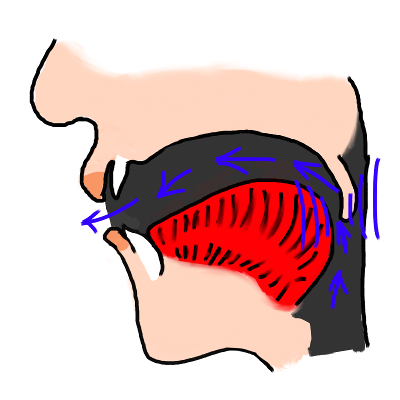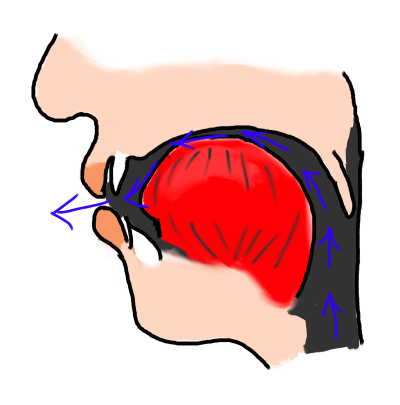How to pronounce cru
Do you find the information below useful? If you do, you can get guides like it for 1,000+ French words by downloading this app for your iPhone or iPad.
| k |  | A French 'k' sound (often written "qu" or, as in English, "c") is generally pronounced in a similar way to the English 'k' sound of "skin", "scan" etc. In other words, it is not usually followed by a "strong burst of air" (aspiration) as in the 'k' sound of English "kit", "can" etc. If you are a native English speaker, repeat the word "cool" then "school" while holding your hand in front of your mouth. In the word "cool", you'll feel a stronger burst of air than in "school". In French, you always pronounce the 'k' sound as in English "school", without the strong burst of air. | |
| ʁ |  | The French 'r' is generally what is technically called a "uvular fricative". In simple language, that means you bring the back of your tongue close enough to the back of the mouth that it causes friction (the "raspy" sound that you hear) with the escaping air. | |
| y |  | The French 'u' vowel is pronounced with the tongue almost as far forward and close to the roof of the mouth as it will go (as for an 'i' vowel), but with the lips rounded. Aim to 'hold' your lips in position to avoid pronounce the vowel is a 'glide' or diphthong. The phonetic symbol [y] can be slightly confusing: it represents the 'u' vowel, and not the sound at the beginning of the English word "yes". |